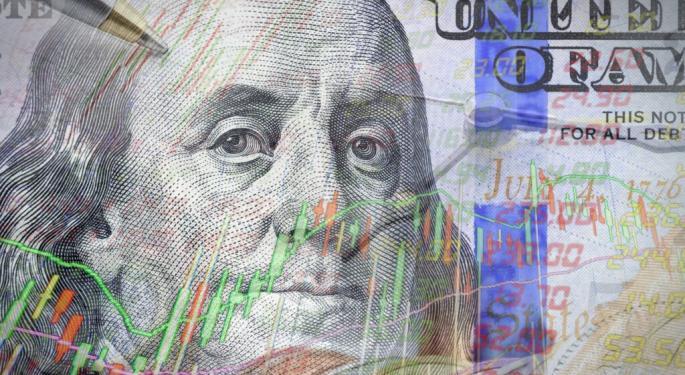How A $250 Provision In Trump's 'Big, Beautiful Bill' Could Help Cut the US Deficit By Billions
In the recently passed “Big, Beautiful Bill,” visitors to the United States will now be required to pay a new visa integrity fee, which has the potential to slash the U.S. Federal Deficit over a decade.
What Happened: The fee, known as the “visa integrity fee,” is set at $250 and will be applicable from the end of the current fiscal year. The fee is non-refundable but can be reimbursed under certain conditions, according to a report by Fortune.
The fee is expected to generate billions of dollars, with the Congressional Budget Office (CBO) estimating a reduction of $28.9 billion in the federal deficit over the next decade. The CBO also anticipates that the Department of State will issue approximately 120 million nonimmigrant visas in the same period.
Reimbursements will occur after the visa expires, with any unclaimed fees directed to the Government's General Fund. The fee will be adjusted annually for inflation, and the Secretary of Homeland Security holds the authority to raise it.
According to DOS data, over 10.4 million nonimmigrants were granted visas in 2023 alone. However, the CBO anticipates that only a "small number" will request reimbursement, since many nonimmigrant visas remain valid for multiple years.
Notably, Steven Brown, a partner at Reddy Neumann Brown PC, stated on his firm's website that the fee's "specific start dates have not yet been confirmed."
Most travelers are also required to pay a fee associated with submitting the Form I-94 arrival and departure record. The One Big Beautiful Bill Act raised this fee from $6 to $24.
See Also: If Bitcoin Breaks $100K, This CEO Will ‘Gladly Admit’ Being Wrong About A Bear Market
Why It Matters: The introduction of this new fee comes on the heels of other significant changes in U.S. visa policies. In June, the Trump administration proposed a premium residency program called the “Trump Card” visa, which attracted nearly 70,000 applicants within hours of its launch. This program, aimed at foreign nationals, requires a $5 million investment in a U.S. business and is expected to generate a $1 trillion windfall for the U.S.
Another significant change occurred in the U.S. student visa policy, with the State Department resuming student visa applications after a month-long suspension. However, the resumption came with new screening requirements, including mandatory access to social media accounts for government review.
These policy changes, including the new “visa integrity fee,” are expected to have a significant impact on international travel and immigration to the U.S.
Read Next:
Image via Shutterstock
Disclaimer: This content was partially produced with the help of AI tools and was reviewed and published by Benzinga editors.
© 2025 Benzinga.com. Benzinga does not provide investment advice. All rights reserved.
Posted-In: News



